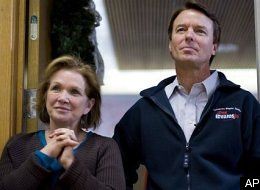My sig line, which I’ve displayed not-so-proudly for the past year is “Another day, another devalued dollar.” It seemed appropriate at the time I decided to place it above my name in each blog comment I make, but it seems more and more appropriate with each passing day.
Not only is our economy now in a recession, not only are home foreclosures at an all time high as well as new home sales at an all time low, not only are lending establishments NOT lending money unless people put up their first born along with some other serious collateral, but the latest bad financial news about our banking industry here in the US may have us wondering about the safety of the money you have deposited at your own bank!
This from CNN:
In the past year there have been four bank failures.
And the chairman of the Federal Deposit Insurance Corp and banking industry experts foresee many bank failures down the road.
“Regulators are bracing for 100-200 bank failures over the next 12-24 months,” says Jaret Seiberg, an analyst with the financial services firm, the Stanford Group.
Expected loan losses, the deteriorating housing market and the credit squeeze are blamed for the drop in bank profits.
The problem areas will be concentrated in the Rust Belt, in places like Ohio and Michigan and other states like California, Florida and Georgia.
The number of institutions categorized as “problem” institutions by the FDIC has also grown from 50 at the end of 2006 to 76 at the end of last year.
YIKES! Ever since Bu$hCo was installed into the American Government by the Supreme Court in 2000, for America and Americans, if it wasn’t for bad luck, we wouldn’t have any luck at all.


 Archival posting of One America Comittee blog
Archival posting of One America Comittee blog There are two sides to public funding of tertiary education. One is education as a requirement for career opportunities. To the extent that education is required for entry into “good” careers, then our American ideals demand public funding of those without the means to go proceed with tertiary education on their own. Otherwise higher education becomes a means of establishing a permanent class system, and ends the dream of a land of opportunity.
There are two sides to public funding of tertiary education. One is education as a requirement for career opportunities. To the extent that education is required for entry into “good” careers, then our American ideals demand public funding of those without the means to go proceed with tertiary education on their own. Otherwise higher education becomes a means of establishing a permanent class system, and ends the dream of a land of opportunity. That graph was posted alongside
That graph was posted alongside